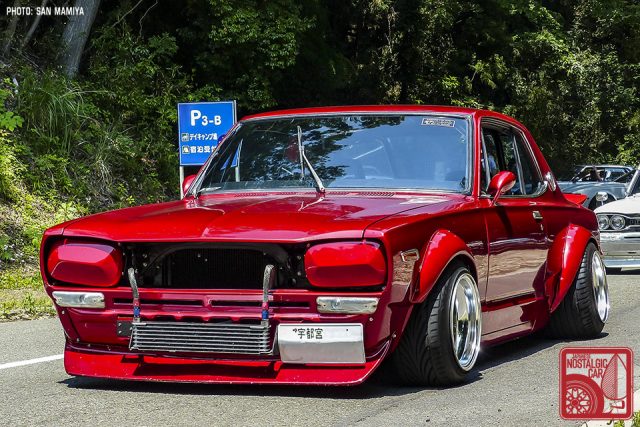
Recently the Skyline & Kyusha Meeting was held at Sagamiko Forest Resort, put on by the Skyline Yushi-kai, or Skyline Warriors Club. While Skylines accounted for many of the cars that attended, non-Skylines were welcome too, as long as they were of the same kaido racer and bosozoku style.
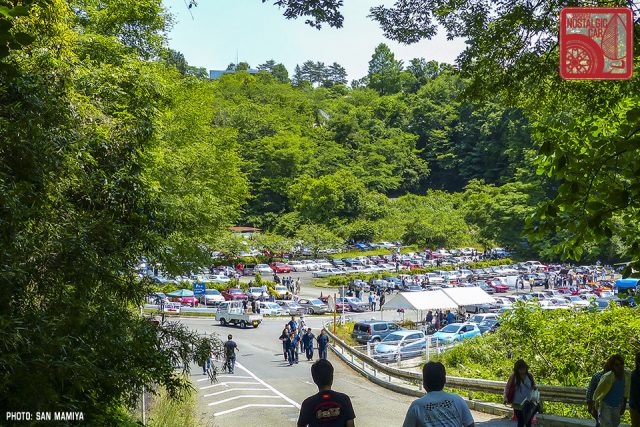
The Sagamiko Forest Resort is normally a large family destination, containing an amusement park, campgrounds, and barbecue area. But for a couple days a year, the kaido racers take over.
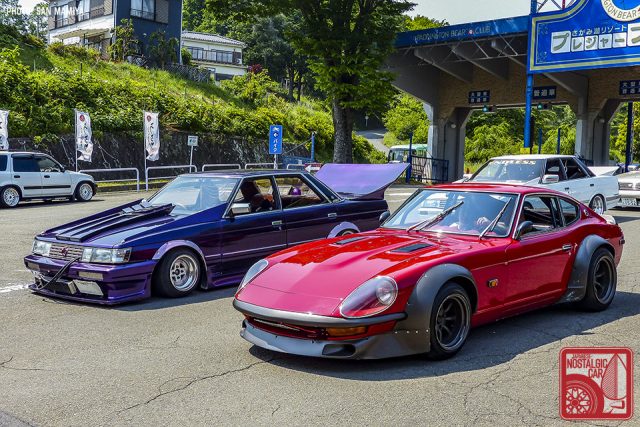
The terms kaido racer and bosozoku get thrown around a lot these days, but even within the genre there are many sub-styles. Inspired by the works touring cars and silhouette racers of old, they are a uniquely Japanese form of automotive art, akin to the hot rod or lowrider.
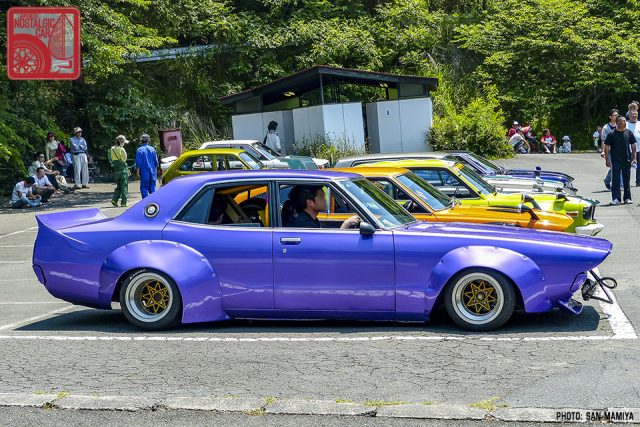
Cars like this purple Yonmeri may not be to everyone’s liking, but like most kaido racers today the craftsmanship is incredible — with a seamlessly elongated sharknose, molded spoiler and perfectly fitted bumpers, the owner is clearly capable of excellent body work. However, the Hayashi Techno TRVs must be housed by purposefully bolted-on, massive works-style fenders.
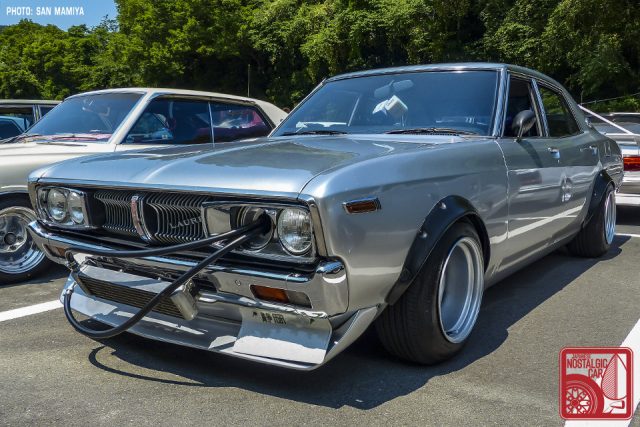
Some are simpler, like this so-called Day Two gamera Laurel. Day Two refers to the easy menu of mods one could make on the second day of ownership — hanging an oil cooler off the front, cutting the fenders and riveting on some flares, and slapping on some Vitaloni Californian mirrors from the local Autobacs.
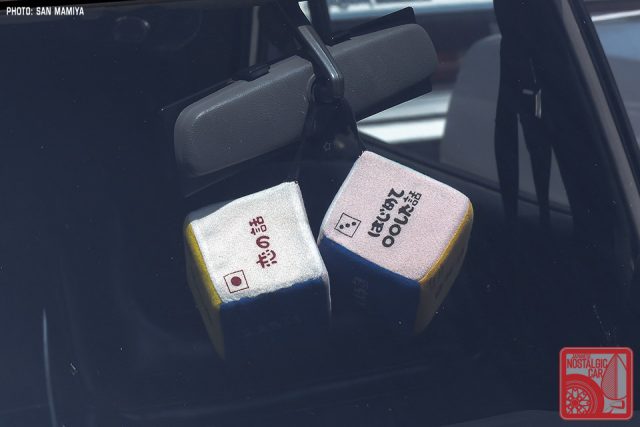
Of course, part of the bosozoku aesthetic is having elements purposefully askew, and that includes everything from the Laurel badge on the grille to the rear-view mirror.
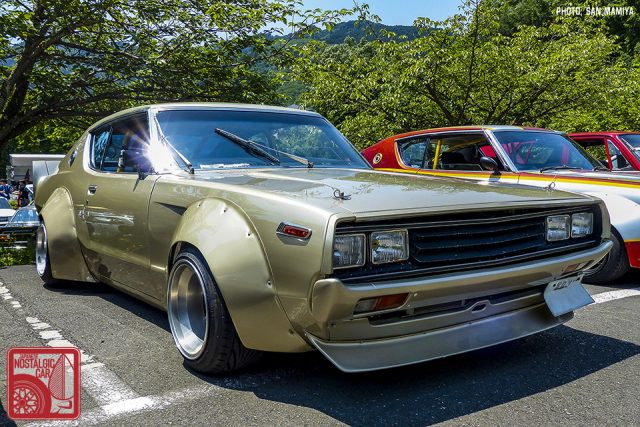
Yet others have been built by legendary tuning houses. Mizuno Works created this Kenmeri for a long-time customer with many custom parts like the Katayama flares inspired by Mazda RX-3 race cars. The vented fenders and tail were also custom-made by Mizuno, while other period details like the race orientation wipers and Musashi grille conversion kit with Toyota Crown headlights have been peppered throughout.
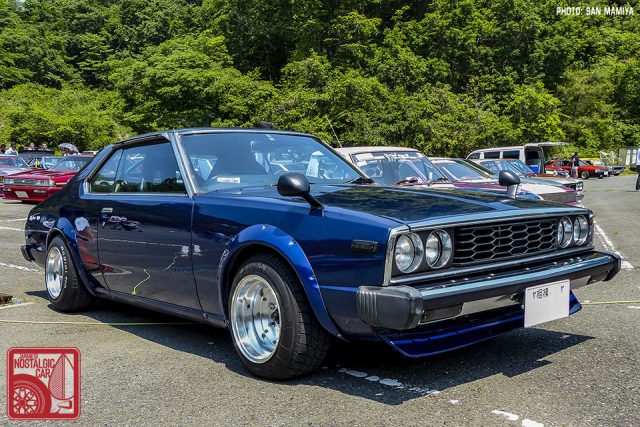
Simple is the key in this early Skyline Japan with just some flares, chin spoiler and a set of SSR MkI wheels. This can’t strictly be called a Day Two car because it’s been painted, but it’s still proof one doesn’t need to go to extremes to have a cool sled.
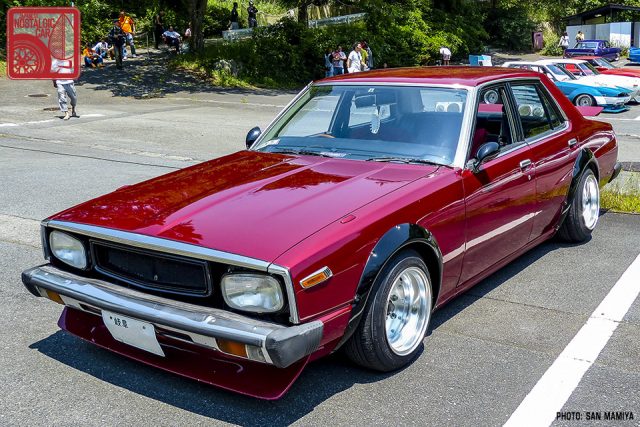
With Nissan having pulled out of racing as a result of the 1973 Oil Shock, the kenmeri and Japan Skylines never got to shine on the circuit. Many of the kaido racers are built to echo the style of their forefathers with styling cues, though, like a Hakosuka rear wing. This style of flare was inspired by the Kenmeri, but popularized by the Skyline Japan that serves as the star car of the SSR Tomcat ads.
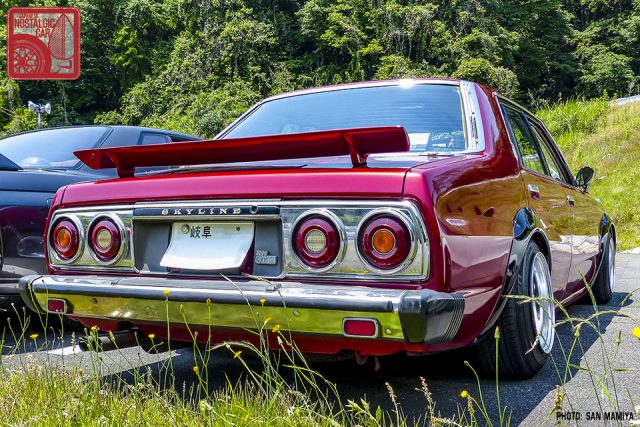
Vitaloni Californian mirrors, a butaketsu Laurel grille and nekome headlights are standard bosozoku fare. The taillight panel is stock, but lacquer thinner was used to take off the paint for a blingier look.
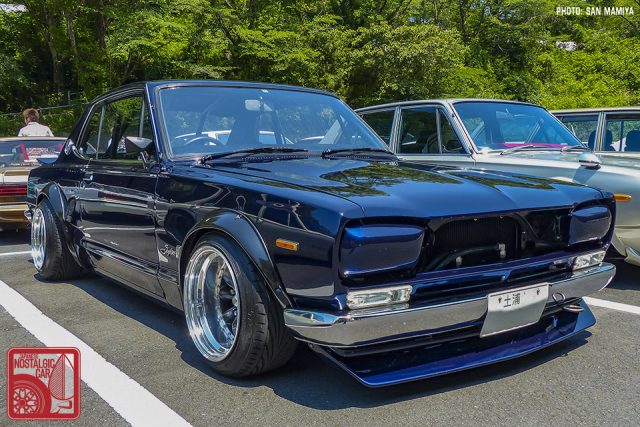
With the popularity of the Hakosuka in the kyusha world, many modern builds are appearing as well. Sporting Wangan Midnight-blue paint and large-diameter Panasports, the style of this car screams mid-90s tuner. The only things that are really 80s on this car are the Napoleon door mirrors (it wasn’t always about the fender mirrors back in the day).
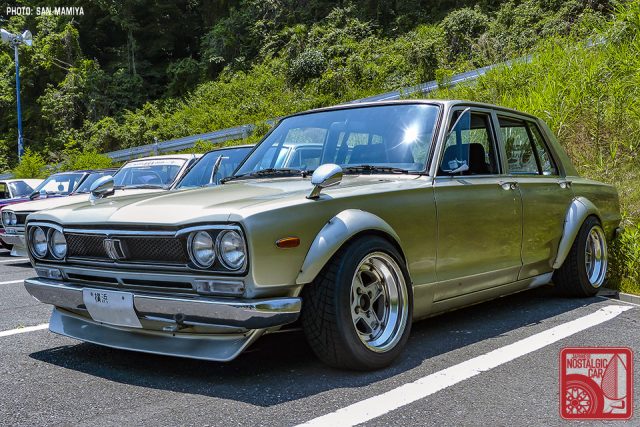
Featured in Drift Tengoku, this Hakosuka sedan is a well-known drift car. While its skin says kyusha, beneath the sheetmetal it’s rocking an S13 IRS subframe. The engine remains an L-series, but it still has the power to be dramatic and quick — and stylish! — on drift courses.
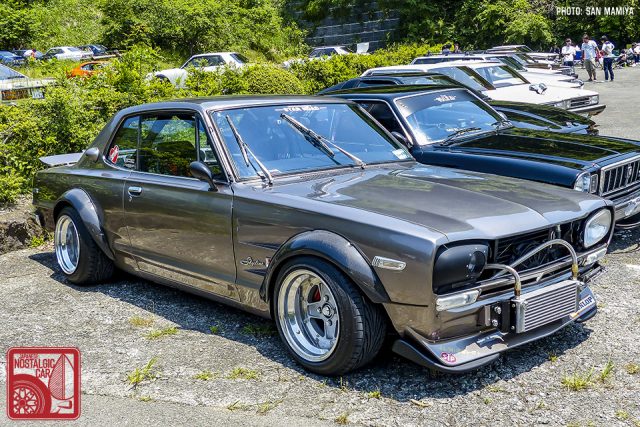
Modern Hakos in G-Works style are hugely popular today. In addition to the canards on the chin spoiler and metallic paint, carbon fiber flares over 15-inch SSR MkIIs seal its resto-mod feel.
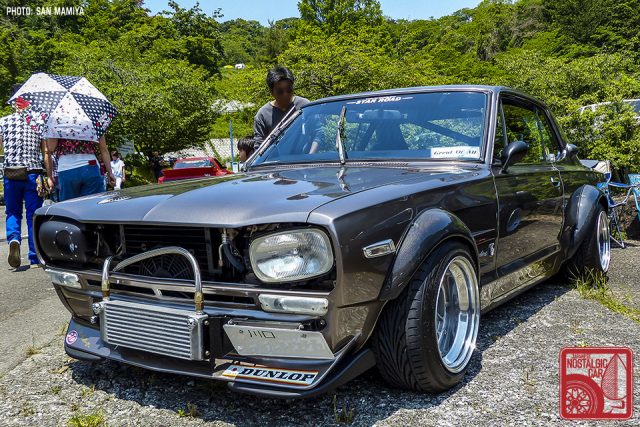
In the old days, a true kaido racer would delete the headlight and the opening in the cover would funnel air through a duct. Now, a little less hard core and with perhaps the desire not to get harassed by the cops, the headlight cover evokes that look, but still has a functioning light behind it.
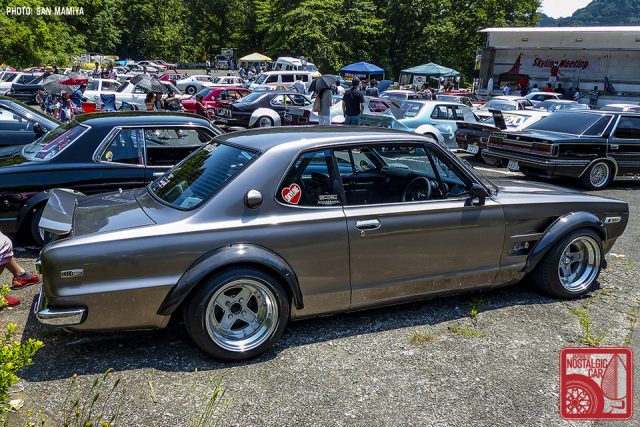
Still, the Hako retains some classic touches, including nekome lights, a classic Dunlop decal, race orientation wipers, Laurel crystal lens side repeaters, and cabin extractors on the C-pillars in the fashion of the old works racers.
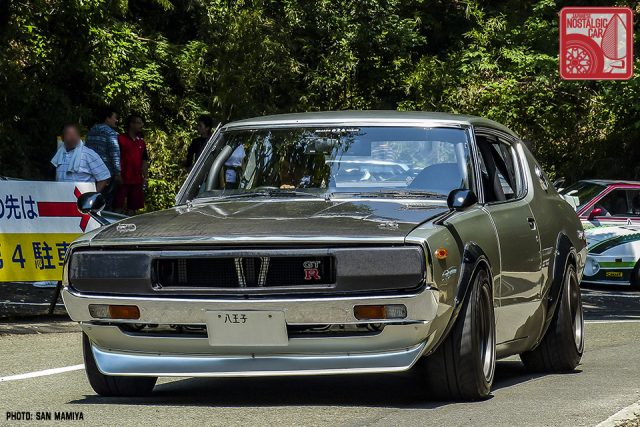
This Kenmeri is also modern, with a carbon racing jacket, hood, and flares. It’s usually hard for a car with so much carbon fiber to look retro, but if paired with the right color — like the dark silver of the old Kenmeris — it somehow ends up working because it resembles the gunmetal gray of old.
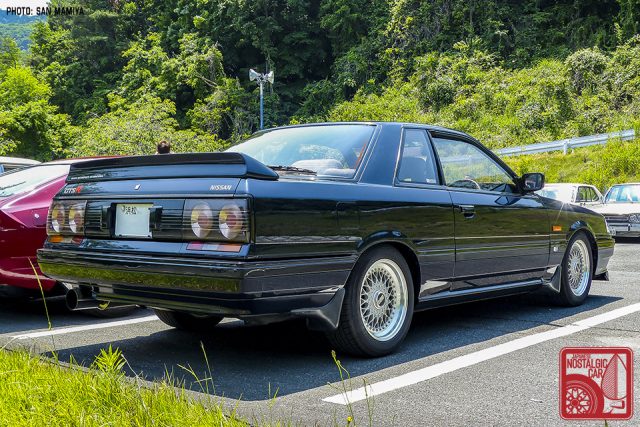
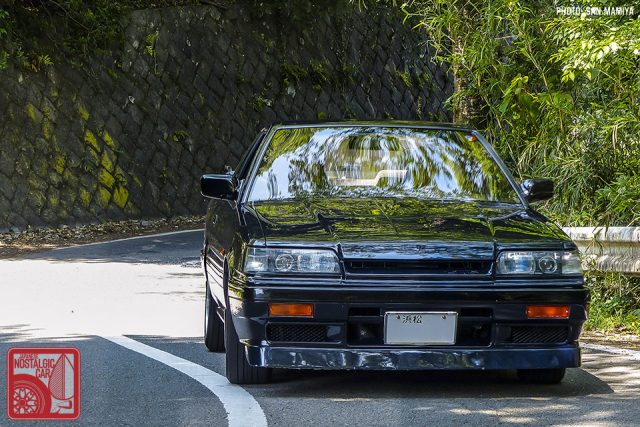
This R31 looks out of place, but it appears to be one of 800 GTS-R homologated road cars from Nissan’s Group A racing program. Also, it sports some mild, easily doable mods like multi-piece BBS wheels and slight drop.
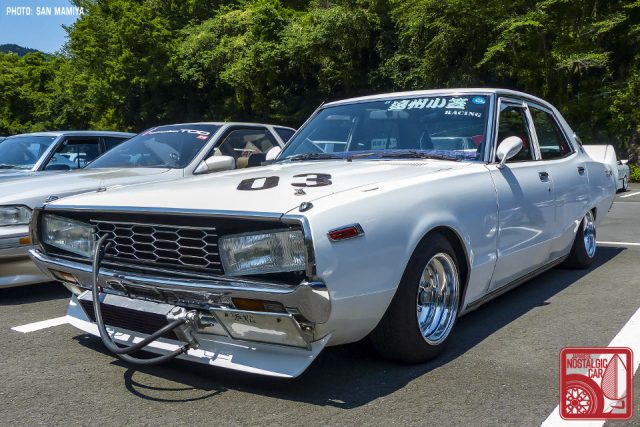
Like a time warp, this Yonmeri exhibits all the correct modifications from a kaido racer circa 1981-82. Its trimmed honeycomb grille from a C210 Skyline, nekome lights possibly from an 810 Bluebird, Vitaloni Californian door mirrors and the requisite oil cooler are all exactly as you would have seen them on a typical bosozoku C110 35 years ago.
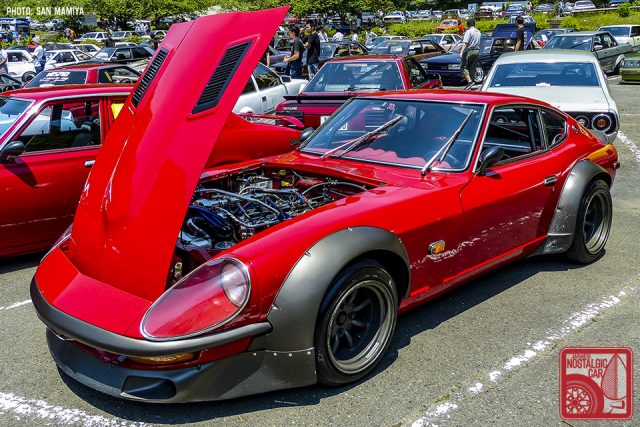
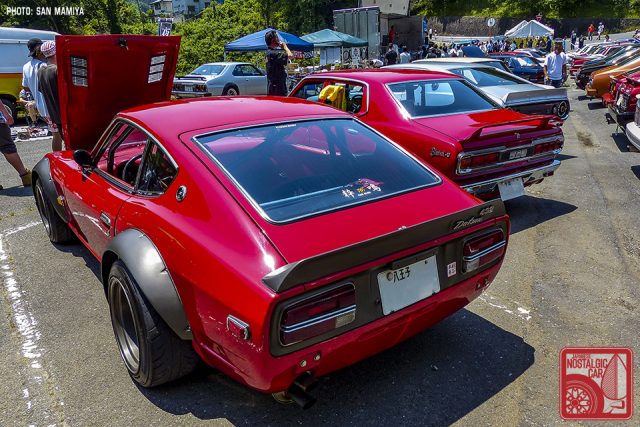
The boasting point of this Z is that it’s a left-hand-drive repatriation. Likely a US 240Z at birth, it’s been completely converted into a flared G-nose. The only giveaway are the side marker lights, which on the front have been curiously moved mid-fender.
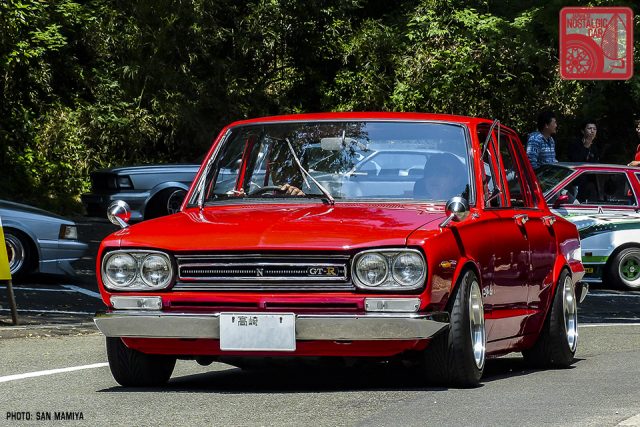
Though most of the period-correct cars were far from stock, a simple red 4-door Hakosuka could also be considered era-appropriate. They’ve been largely overshadowed because of their kaido racer brethren, but a Hako sedan such as this would have been even more prevalent than a kenmeri GT-R clone back in the day.
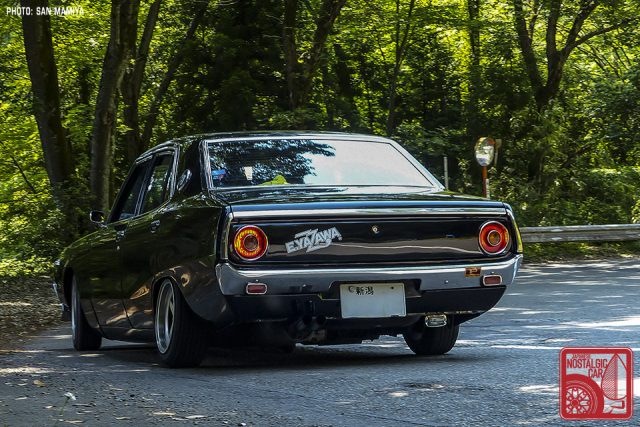
The quad round taillights have become a signature of the Skyline and GT-R lineage, but at the height of the kaido racer era it would have been more fashionable to go “one-tail” by removing the inside taillamps. The Yonmeri had a lot of clearance under the rear arches too if the proper camber was achieved. Despite a lack of large flares or ultra-deep barrels, however, the right choice of car and modification can still make a statement.
To be continued…



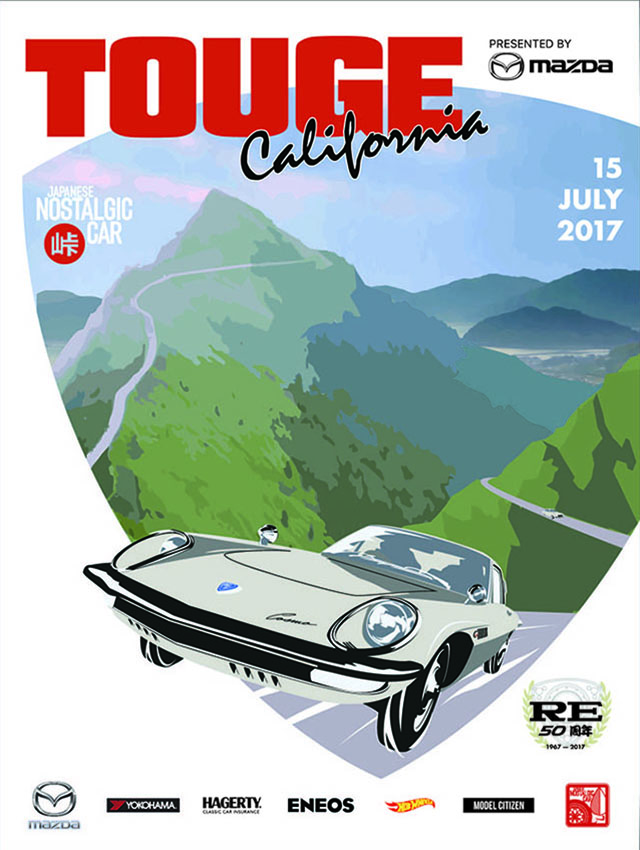

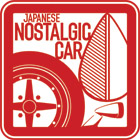
I am not a fan of this school of mods; but there are some great paint-jobs and colours. The first red Hako coupe is stunning.
Very cool, looking forward to part two. Nice to see so many cool four doors.
(I saw some Gx61 and Mx41 in there).
nobody does it better than japan
Hey, if anyone out there has the manufacturing capability, here’s your million-dollar idea:
Those Works flares – make the ones for the rear in 2 pieces each. The rear piece would have some sort of bracket to attach just behind the door opening, to keep the flare from collapsing, and a “lip” to the inside. The front piece also has a bracket to stabilize it, and it overlaps the lip of the rear piece.
May require a thin, “wire outline,” over which the fiberglass – or other material, such as carbon fiber could be laid. Maybe a polyethylene flare, overlaid with the other, more sturdy material. Just thinking out loud, here…
If no lip can be done that precisely, a weatherstrip could fulfill the job of mating the pieces.
Run a thin strip (plastic/Teflon/???) on the rear of the front portion to at least reduce squeaks.
A wider vinyl strip could be used to cover any gaps between the flare and body, unless the owner would really want to do the extra work to lay the fiberglass in the gap. Custom-made per car would probably be cost prohibitive.
Rear doors still usable!
Could do IMSA flares the same way.
Gimme five dollars per rear set, and we’ll call it even.
En üstteki resimde olan arabayı istiyorum